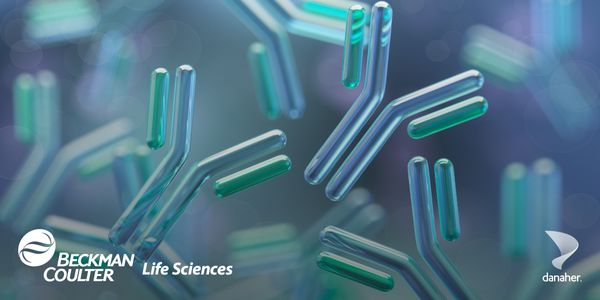Acute Myeloid Leukemia
Acute myeloid leukemia, or AML, is a type of cancer that affects the bone marrow and blood. AML usually begins in cells that turn into white blood cells, but it can start in other blood-forming cells, as well.
-
DEC 10, 2025 | 9:00 AMBACKGROUND . Myelodysplastic syndromes (MDS) are a heterogeneous group of myeloid neoplasms with variable clinical outcomes and an increased risk of progression to Acute Myeloid Leukemia (AM...SEP 26, 2023 | 11:00 AMMulticolor flow cytometry is beneficial because it allows us to gain deeper insights from a given biological sample, with fewer repeat markers in each tube and quicker results. In this three...Learning Objectives: - Summarize the reasons for growth of Precision Medicine-based testing - Review challenges that are impacting the growth of Precision Medicine - Identify opportunities t...
MAY 31, 2023 | 11:00 AM
Date: May 31, 2023 Time: 11:00am (PDT), 2:00pm (EDT), 8:00pm (CET) Single-cell genomics has facilitated the understanding of mechanisms involved in various biological processes such as tumor...
We have developed an electronic method to screen cells for their phenotypic profile, which we call Node-Pore Sensing (NPS). NPS involves using a four-terminal measurement to measure the modu...
FEB 09, 2021 | 8:00 AM
DATE: February 09, 2021 TIME: 08:00am PST Flow cytometry immunophenotyping has become one of the mainstream applications for the diagnosis and classification of several hematologic neoplasms...
Myeloid neoplasms represent a highly heterogeneous group of diseases that encompass myeloproliferative, myelodysplastic (myeloproliferative/myelodysplastic) processes and acute myeloid leuke...
Myeloid neoplasms represent a highly heterogeneous group of diseases that encompass myeloproliferative, myelodysplastic (myeloproliferative/myelodysplastic) processes and acute myeloid leuke...
Speaker:
Megan S. Lim, MD, PhD
Presented at: OncomineWorld Autumn: A virtual NGS education meeting
Tumor phenotypes are dictated not only by the neoplastic cell component, but also by the tumor microenvironment (TME), which is inherently immuno-suppressive, is equipped to hamper effector...
Speaker:
Dr. Sergio Rutella
Presented at: Cancer Research & Oncology Week Virtual Event Series 2020
Sponsored By: NanoString Technologies
Sponsored By: NanoString Technologies
OCT 01, 2020 | 11:00 AM
Date: October 1, 2020 Time: 10:00am (PTD), 1:00pm (EDT) Cancer cells rely on altered metabolism to support their proliferation. We performed a CRISPR/Cas9 functional genomic screen targeting...
Single-cell mass cytometry identifies mechanisms of resistance to immunotherapy in AML 6:30–7:00 am PDT Presented By: Shelley Herbrich, PhD Understanding CD19 negative relapse followin...
Speaker:
Shelley Herbrich, PhD
, Kara L. Davis, DO
, Bernd Bodenmiller, PhD
Presented at: 9th Annual Fluidigm Mass Cytometry Virtual Summit
Background: Acute myeloid leukemia (AML) is a molecularly and clinically heterogeneous hematological malignancy. Despite recent advancements in the treatment of AML, approximately 50% of pat...
Tumor phenotypes are dictated not only by the neoplastic cell component, but also by the tumor microenvironment (TME), which is inherently immuno-suppressive, is equipped to hamper effector...
Speaker:
Sergio Rutella, MD, PhD, FRCPath
Presented at: Advancing Science - A Virtual Oncology Conference



















